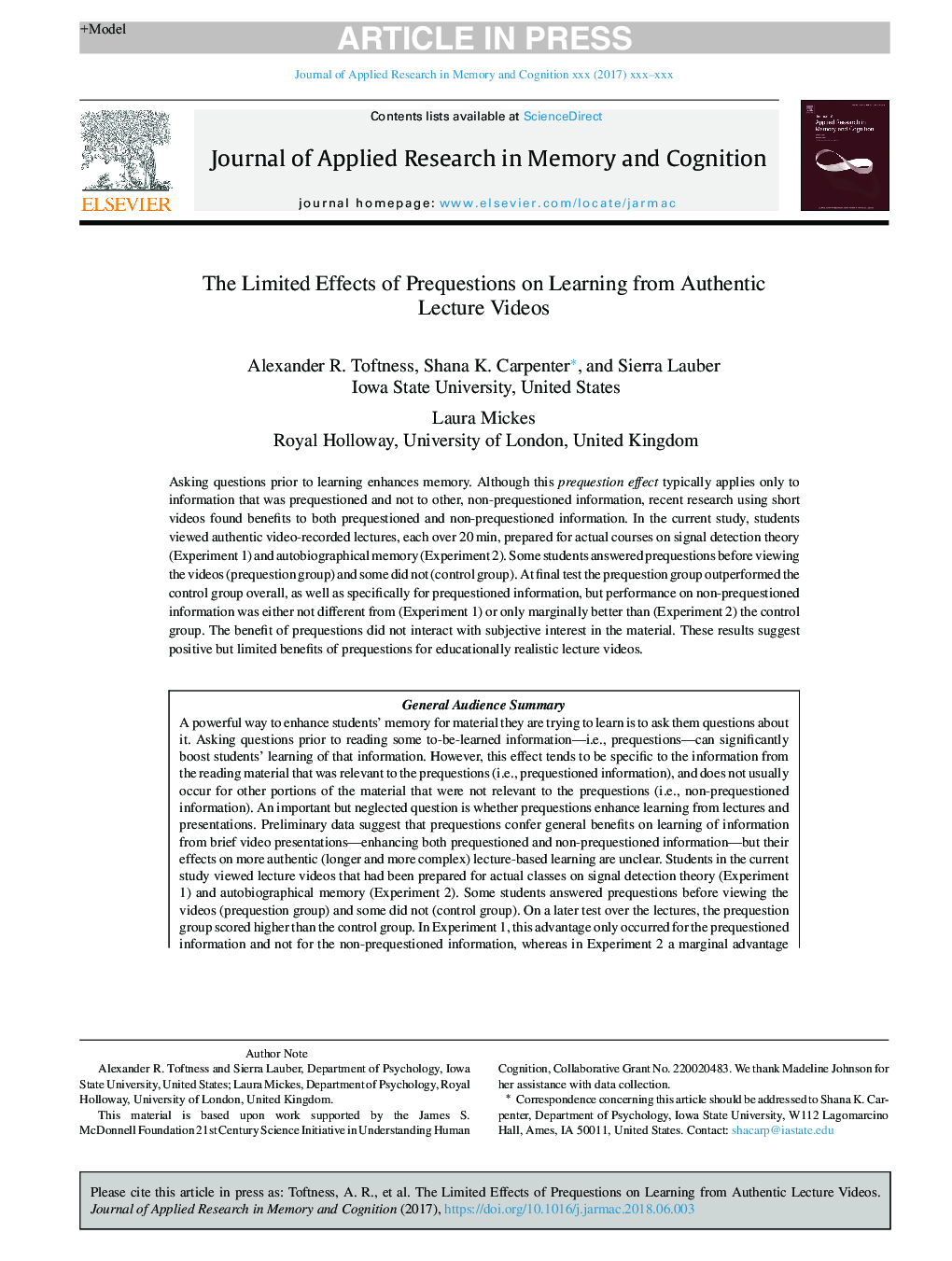| Article ID | Journal | Published Year | Pages | File Type |
|---|---|---|---|---|
| 10153247 | Journal of Applied Research in Memory and Cognition | 2018 | 9 Pages |
Abstract
Asking questions prior to learning enhances memory. Although this prequestion effect typically applies only to information that was prequestioned and not to other, non-prequestioned information, recent research using short videos found benefits to both prequestioned and non-prequestioned information. In the current study, students viewed authentic video-recorded lectures, each over 20Â min, prepared for actual courses on signal detection theory (Experiment 1) and autobiographical memory (Experiment 2). Some students answered prequestions before viewing the videos (prequestion group) and some did not (control group). At final test the prequestion group outperformed the control group overall, as well as specifically for prequestioned information, but performance on non-prequestioned information was either not different from (Experiment 1) or only marginally better than (Experiment 2) the control group. The benefit of prequestions did not interact with subjective interest in the material. These results suggest positive but limited benefits of prequestions for educationally realistic lecture videos.
Related Topics
Social Sciences and Humanities
Psychology
Applied Psychology
Authors
Alexander R. Toftness, Shana K. Carpenter, Sierra Lauber, Laura Mickes,
